Haiga Showcase: Sankara Jayanth Sudanagunta

When I feel like painting, I first try out various brushes and brushstrokes without any aim or reason. I let the shapes that form decide where I want to go with my painting in that moment. So many of my works feature a red sun … seeing a red streak on the canvas somehow seems to calm my mind. When turning a painting into a haiga, I personally prefer a close link and shift between the haiku and the painting.
Sankara Jayanth Sudanagunta
Commentary
By Ron C. Moss, Haiga Editor
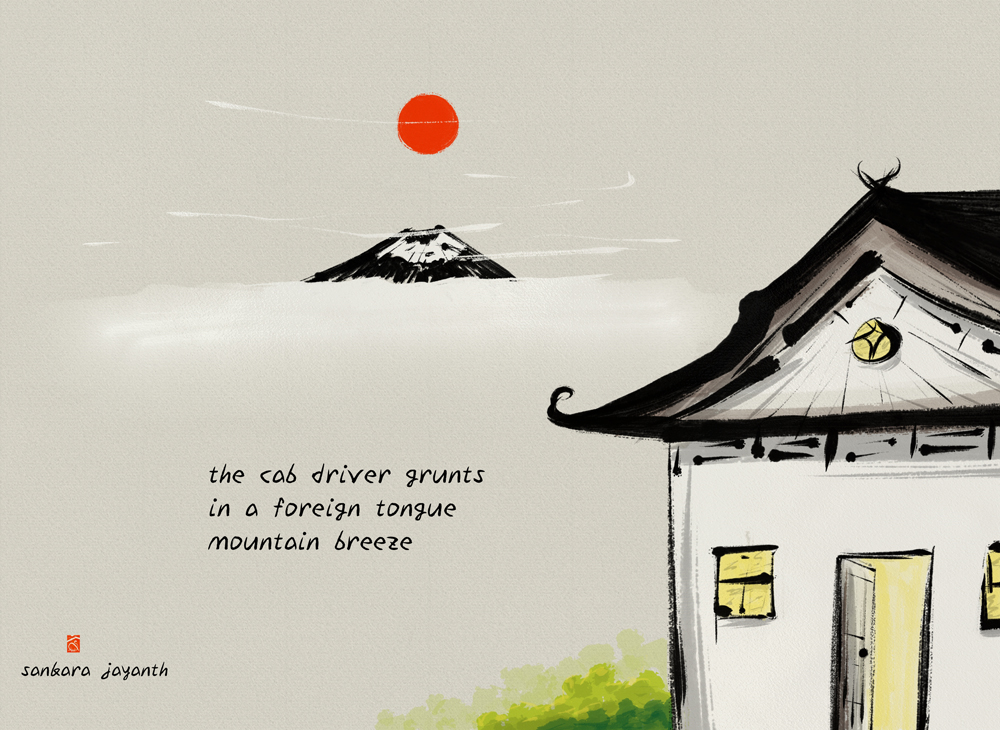
In “the cab driver grunts” we have lovely artwork with plenty of open space around the elements. The brushed work and the senryu are nicely balanced, as is the positioning of the red seal and the artist’s name. The senryu certainly brings a smile to my face—I can see the clever association between the grunt the mountain breeze.
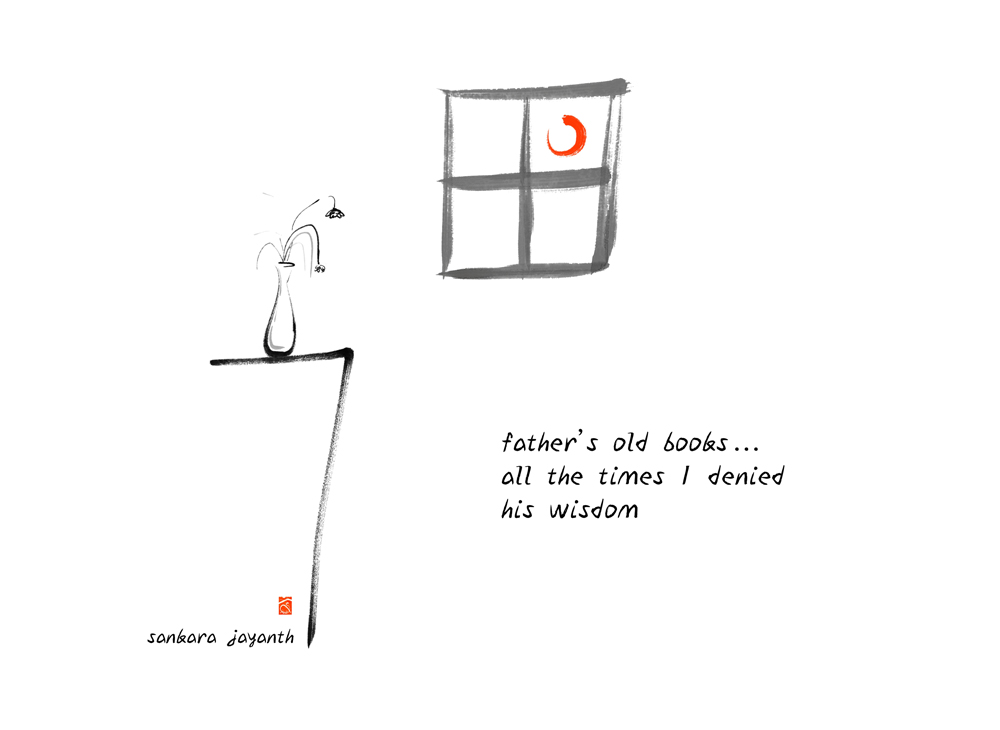
I enjoyed the minimal artwork in “father’s old books.” Its connection to the senryu provides poignancy, delivering a message that’s age-old but always worth retelling, We can see how so much can be portrayed with only a handful of well-chosen words and a few marks on the page.
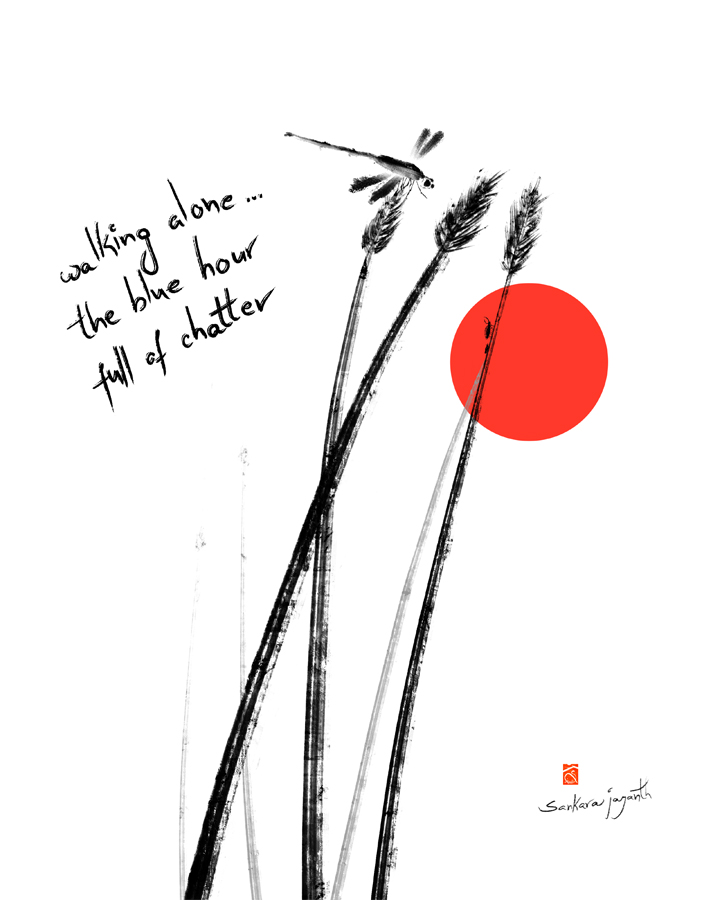
In “walking alone” the haiku floats on the page, angled to mimic the movement of the grasses (and perhaps of the speaker). All the elements—haiku, grasses, the powerful red sun—work together in unison, with nothing added beyond what’s needed. I commend such creative vision to allow things to be simple but full of wonder.
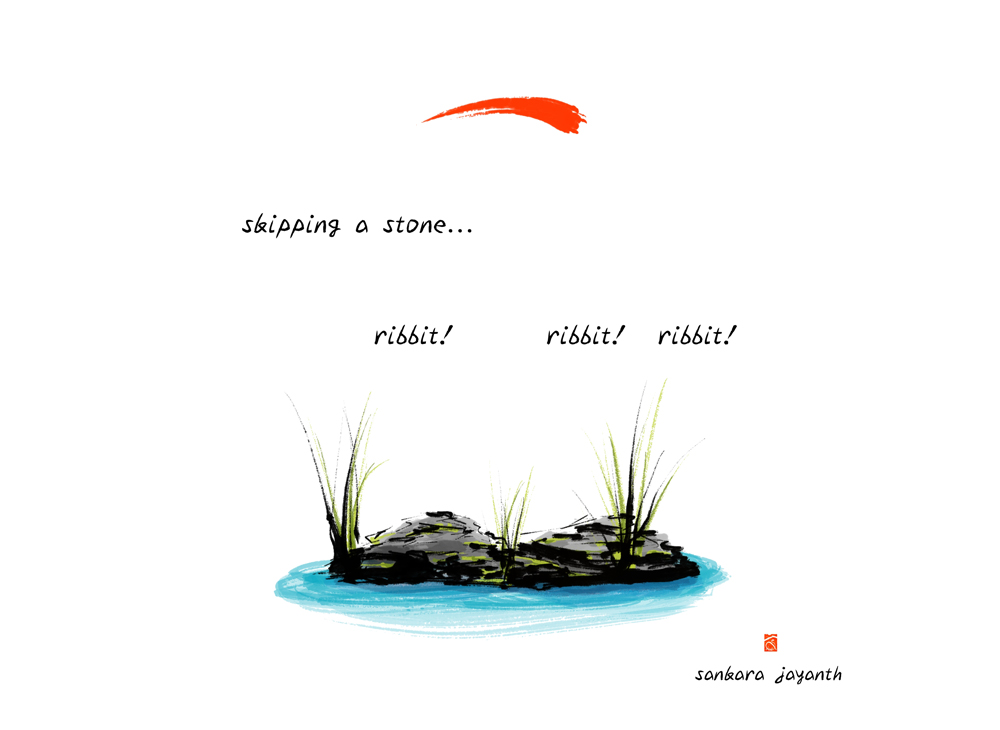
“skipping a stone” is filled with a joy that’s given voice by frogs—what can be better? The slash of red entices and gives us a mystery to contemplate. That mystery—something not yet revealed and waiting to be discovered—is the trademark of a good collaboration between words and image. May we all skip stones and talk the language of frogs!
About the Artist
Sankara Jayanth Sudanagunta is passionate about the haikai forms. To one day write like the great Japanese masters is a life-long goal for him. His haiku, senryu and haiga appeared in leading journals and also won awards in international contests. He is the founding editor of Haiku Seed Journal.
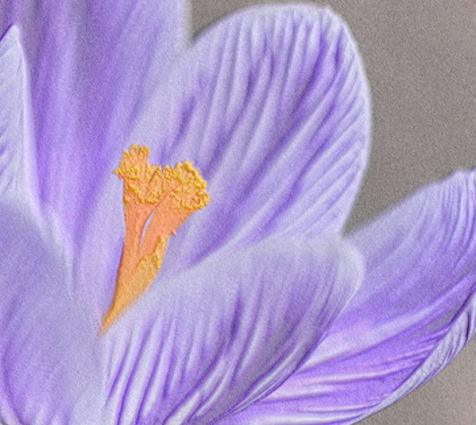
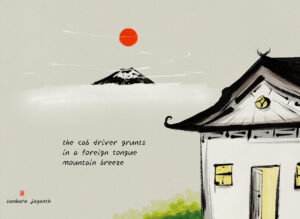



Thank you so much, Ron! Feels wonderful to see my haiga here in the showcase section of CHO. Incredibly grateful. 🙏🙂